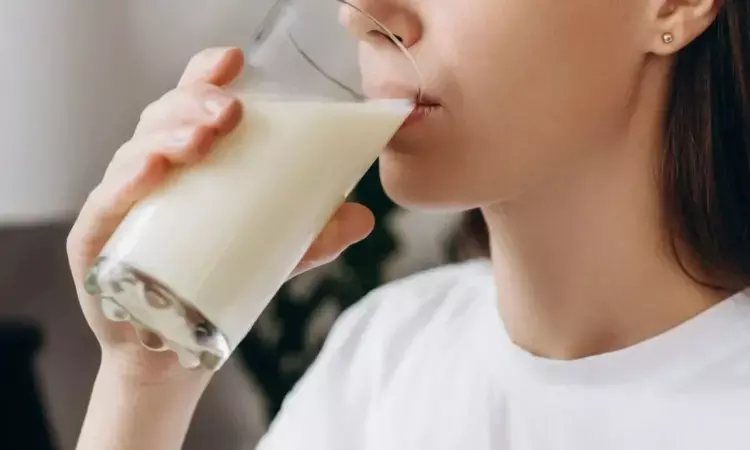- Home
- Medical news & Guidelines
- Anesthesiology
- Cardiology and CTVS
- Critical Care
- Dentistry
- Dermatology
- Diabetes and Endocrinology
- ENT
- Gastroenterology
- Medicine
- Nephrology
- Neurology
- Obstretics-Gynaecology
- Oncology
- Ophthalmology
- Orthopaedics
- Pediatrics-Neonatology
- Psychiatry
- Pulmonology
- Radiology
- Surgery
- Urology
- Laboratory Medicine
- Diet
- Nursing
- Paramedical
- Physiotherapy
- Health news
- Fact Check
- Bone Health Fact Check
- Brain Health Fact Check
- Cancer Related Fact Check
- Child Care Fact Check
- Dental and oral health fact check
- Diabetes and metabolic health fact check
- Diet and Nutrition Fact Check
- Eye and ENT Care Fact Check
- Fitness fact check
- Gut health fact check
- Heart health fact check
- Kidney health fact check
- Medical education fact check
- Men's health fact check
- Respiratory fact check
- Skin and hair care fact check
- Vaccine and Immunization fact check
- Women's health fact check
- AYUSH
- State News
- Andaman and Nicobar Islands
- Andhra Pradesh
- Arunachal Pradesh
- Assam
- Bihar
- Chandigarh
- Chattisgarh
- Dadra and Nagar Haveli
- Daman and Diu
- Delhi
- Goa
- Gujarat
- Haryana
- Himachal Pradesh
- Jammu & Kashmir
- Jharkhand
- Karnataka
- Kerala
- Ladakh
- Lakshadweep
- Madhya Pradesh
- Maharashtra
- Manipur
- Meghalaya
- Mizoram
- Nagaland
- Odisha
- Puducherry
- Punjab
- Rajasthan
- Sikkim
- Tamil Nadu
- Telangana
- Tripura
- Uttar Pradesh
- Uttrakhand
- West Bengal
- Medical Education
- Industry
High Non-Fermented Milk Intake Linked to Increased Heart Disease Risk in Women, Study Finds

Sweden: A recent study involving over 100,000 participants suggests that non-fermented milk may increase the risk of ischemic heart disease (IHD), particularly in women, while no significant association was found in men. The researchers propose that metabolic pathways involving ACE2 and FGF21 may explain the observed association.
According to the researchers, regular milk consumption may negatively impact heart health in women, whereas fermented milk products seem to be safe. The findings were published online in BMC Medicine on November 8, 2024.
The impact of milk on the risk of ischemic heart disease and acute myocardial infarction (MI) remains unclear. To address this, Karl Michaëlsson, Medical Epidemiology, Department of Surgical Sciences, Uppsala University, Uppsala, Sweden, and colleagues aimed to explore the association between non-fermented and fermented milk consumption and these health outcomes, and investigate the relationship between milk intake and cardiometabolic-related proteins in plasma.
For this purpose, the researchers utilized data from two Swedish prospective cohort studies, which included 59,998 women and 40,777 men without IHD or cancer at baseline. Participants provided repeated measures of diet, lifestyle factors, and plasma proteomics data across two subcohorts. Through registry linkage, 17,896 IHD cases were documented during up to 33 years of follow-up, including 10,714 cases of myocardial infarction.
The researchers employed time-updated multivariable Cox regression analysis to examine the relationship between non-fermented or fermented milk intake and the risk of IHD or MI. Additionally, using high-throughput multiplex immunoassays, 276 cardiometabolic plasma proteins were measured, and multivariable-adjusted regression models with a discovery-replication design were used to explore protein associations with increasing milk consumption.
The following were the key findings of the study:
• The results for non-fermented milk intake varied by sex.
• In women, a pattern of increased risk of ischemic heart disease and myocardial infarction was observed with non-fermented milk intake greater than 1.5 glasses/day.
• Compared to an intake of 0.5 glass/day (100 mL/day), women who consumed:
• Two glasses/day had a multivariable-adjusted hazard ratio (HR) of 1.05 for IHD.
• Three glasses/day had an HR of 1.12 for IHD.•
• Four glasses/day had an HR of 1.21 for IHD.
• Similar findings were observed for whole, medium-fat, and low-fat m
• No increased risk of IHD was detected with higher milk intakes in men.
• Fermented milk intake was not associated with IHD or MI risk in either sex.
• Increasing non-fermented milk intake in women was strongly linked to higher plasma ACE2 levels and lower FGF21 concentrations.
"Our findings suggest a direct association between non-fermented milk intake, regardless of fat content, and ischemic heart disease in women at intakes exceeding 300 mL/day, but not in men. Fermented milk intake was not linked to IHD risk. Substitution analysis recommended that women opt for a higher intake of fermented milk rather than non-fermented milk," the researchers wrote.
"Additionally, non-fermented milk consumption in women was associated with higher levels of ACE2 and lower levels of FGF21, two key cardiometabolic proteins with complex regulatory effects, implying potential pathogenic mechanisms underlying these results," they concluded.
Reference:
Michaëlsson, K., Lemming, E.W., Larsson, S.C. et al. Non-fermented and fermented milk intake in relation to risk of ischemic heart disease and to circulating cardiometabolic proteins in swedish women and men: Two prospective longitudinal cohort studies with 100,775 participants. BMC Med 22, 483 (2024). https://doi.org/10.1186/s12916-024-03651-1
Dr Kamal Kant Kohli-MBBS, DTCD- a chest specialist with more than 30 years of practice and a flair for writing clinical articles, Dr Kamal Kant Kohli joined Medical Dialogues as a Chief Editor of Medical News. Besides writing articles, as an editor, he proofreads and verifies all the medical content published on Medical Dialogues including those coming from journals, studies,medical conferences,guidelines etc. Email: drkohli@medicaldialogues.in. Contact no. 011-43720751


